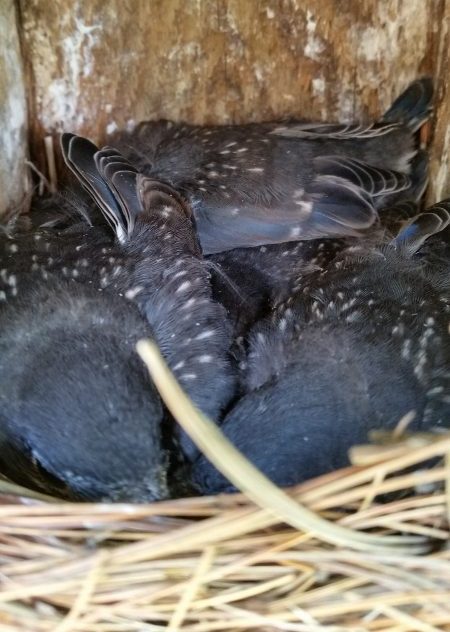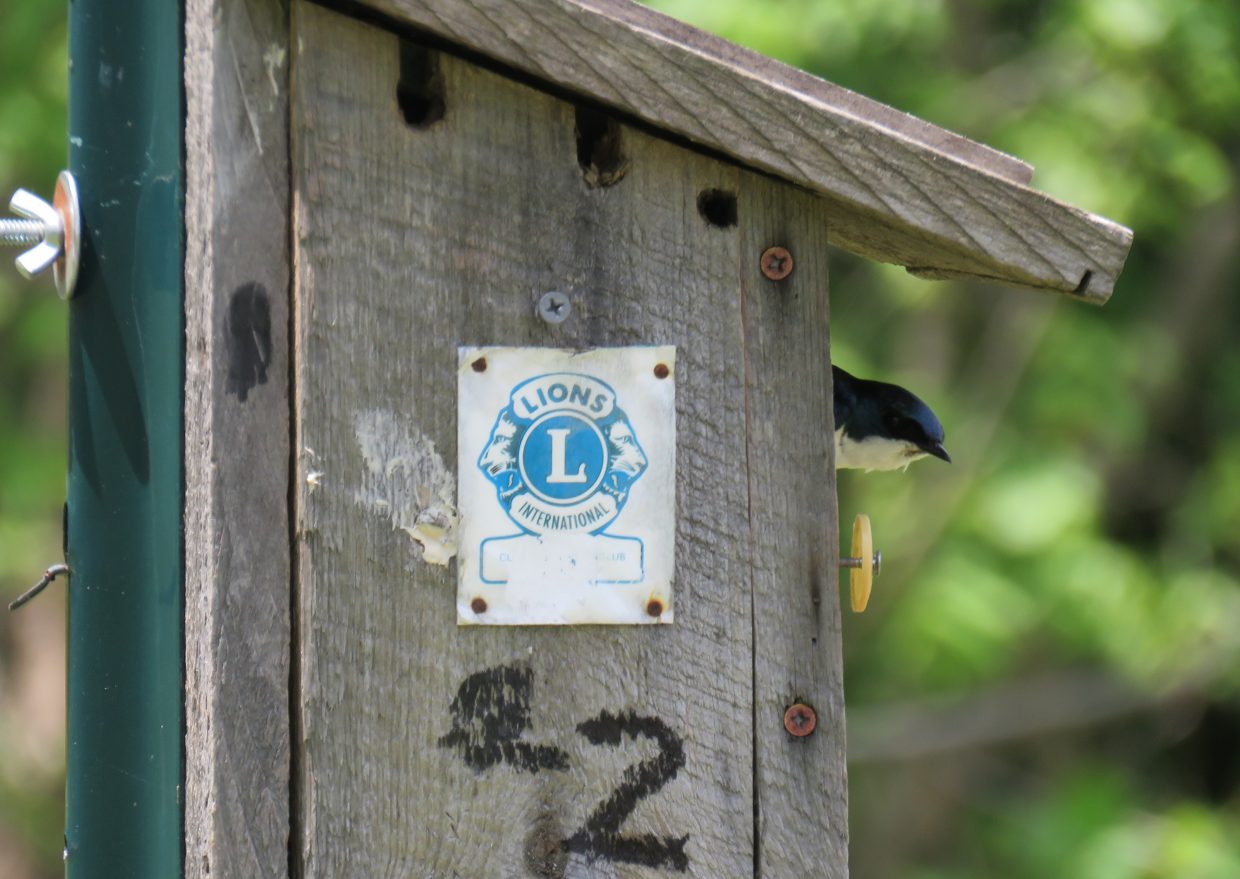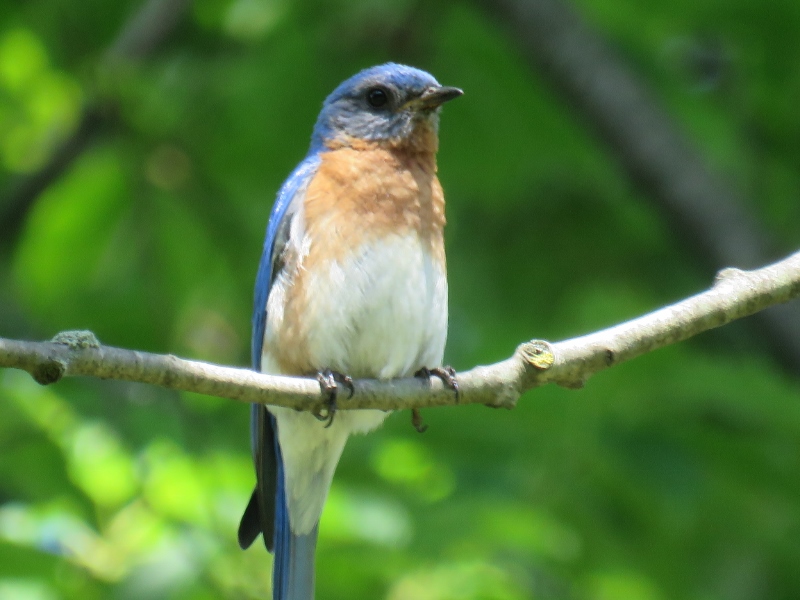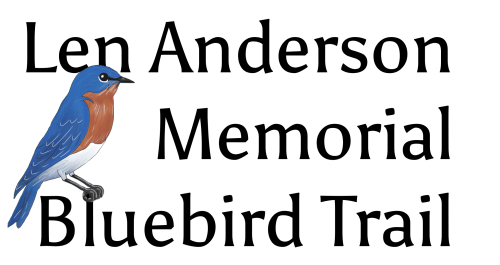Well, after collecting a lot of data, we can show off some of our numbers. Our feathered friends came out early this year, and there have been many successful nest attempts. A successful attempt is when at least one bird fledges from the nest. Of course, we hope for more.
We currently monitor 16 Bluebird (Sialia sialis) nest boxes in the Town of Clarence. We removed two boxes last year plagued by House Sparrows (Passer domesticus). We hope to house Bluebirds, but the boxes are great for other beneficial cavity nesters. We frequently find House Wrens (Troglodytes aedon), Tree Swallows (Tachycineta bicolor), and Black-capped Chickadees (Poecile atricapillus).
The birds started nesting in early April. Here are our stats so far:

We’ve had 11 nest attempts by Bluebirds, with 5 producing fledged young. There was a total of 21 Bluebird fledglings from our boxes. We love seeing them grow from tiny blue eggs.

Bluebird chicks in the nest box. © Angela T. Baron
Tree Swallows have been using many of our boxes. There was a total of 5 successful attempts out of 8 boxes, giving us 24 fledglings. We also have 3 active House Wren nests. They still have eggs in them so we will have to wait and see.

Tree Swallow in nest box © Angela T. Baron
Some of the nest attempts aren’t successful for various reasons. Eggs may not hatch or young die due to genetics or environmental conditions. Eggs can sometimes disappear, usually because of a predator or another bird. We’ve even had whole nests go missing. We try to make safe and appropriate nest boxes for the birds, but there are only so many precautions we can take. Much is up to Mother Nature.
One precaution we take is preventing the nesting of House Sparrows. This invasive species can destroy eggs, kill nestlings, and kill adult Bluebirds. After destroying a nest, they will take over the box and start a nest of their own. It can be devastating to see this happen, so we remain vigilant and quickly remove a House Sparrow nest as soon as possible. We might have to remove their nests many times from a box before they give up and move on.
It may seem discouraging dealing with these little buggers, but knowing that we are giving other birds, especially Bluebirds, a chance to succeed, gives us hope. And a little hope can make all the difference in the world.

Male Eastern Bluebird © Angela T. Baron
